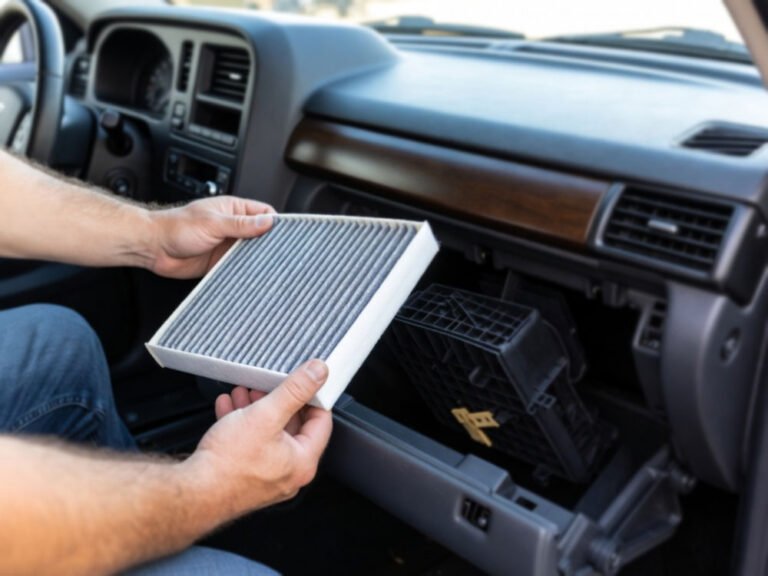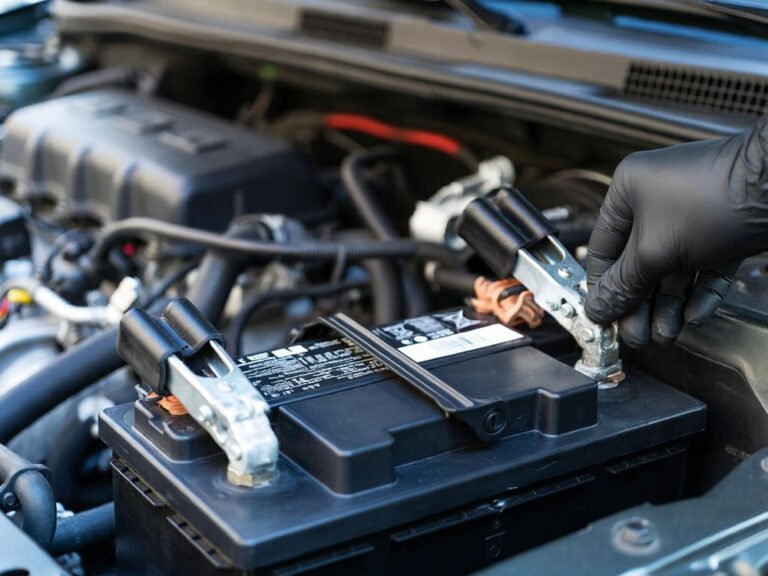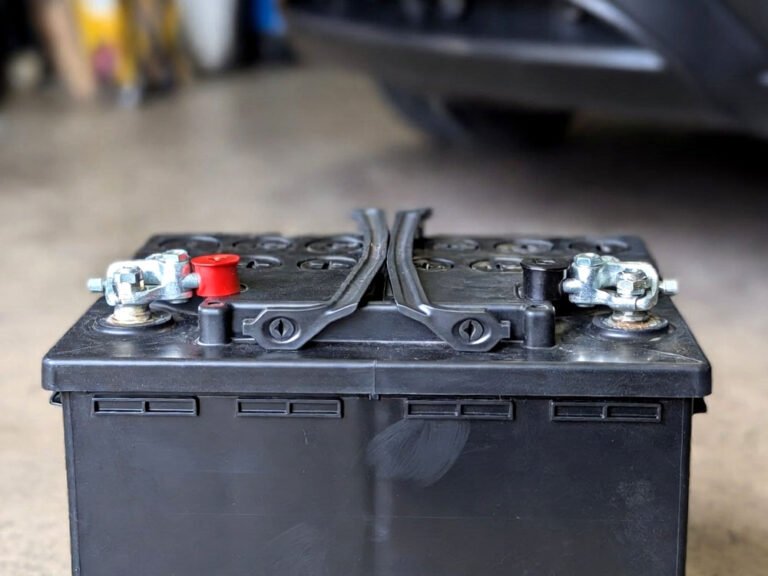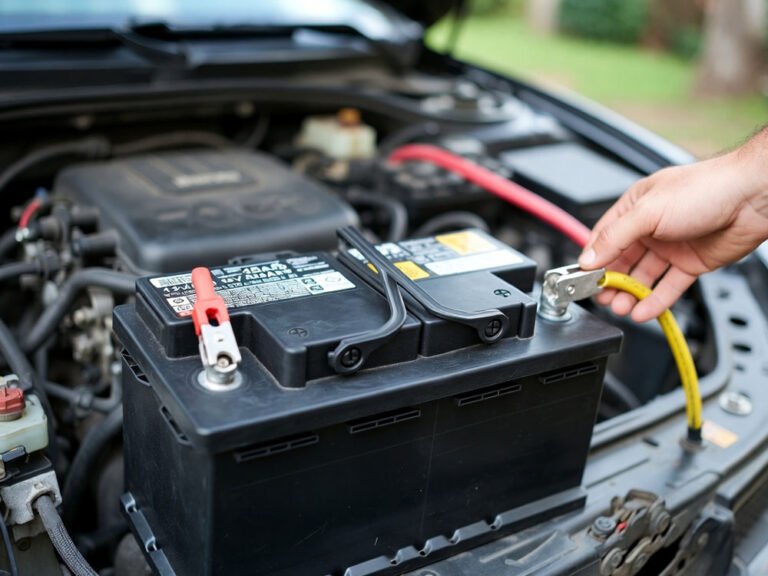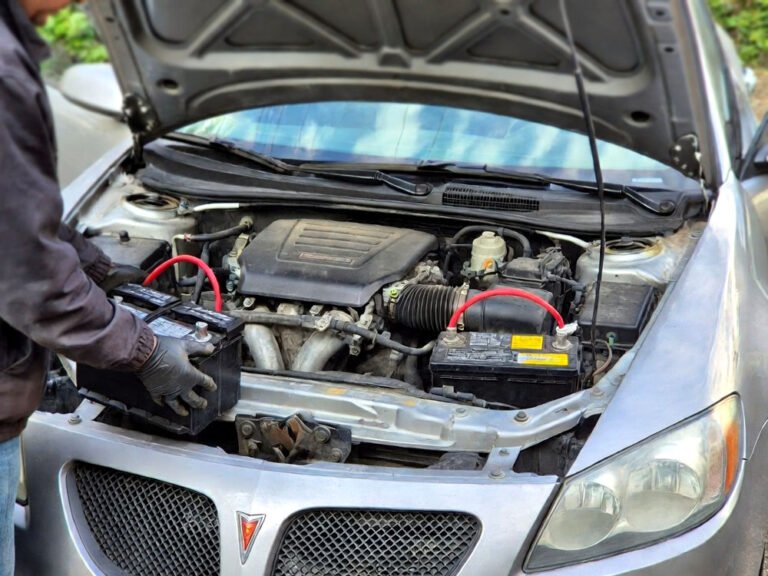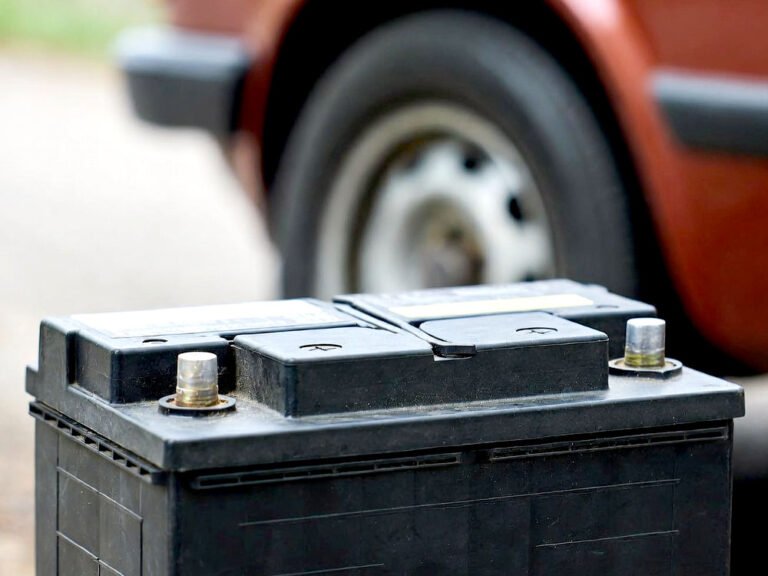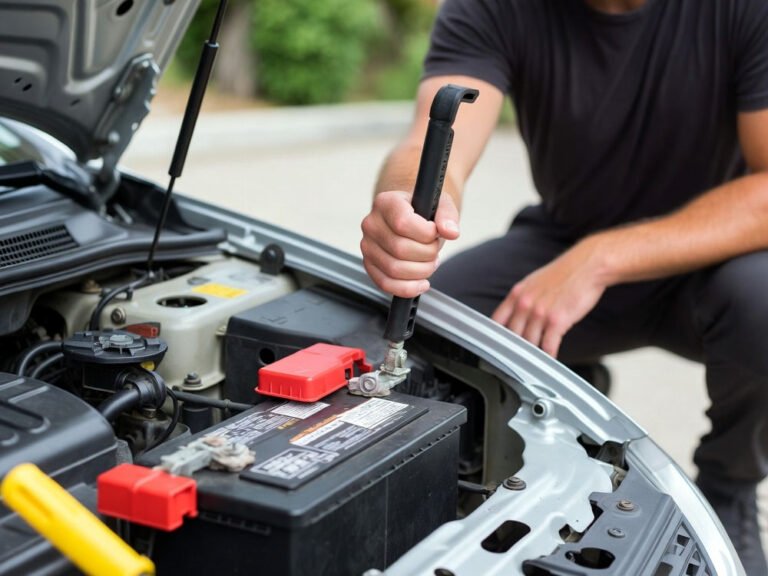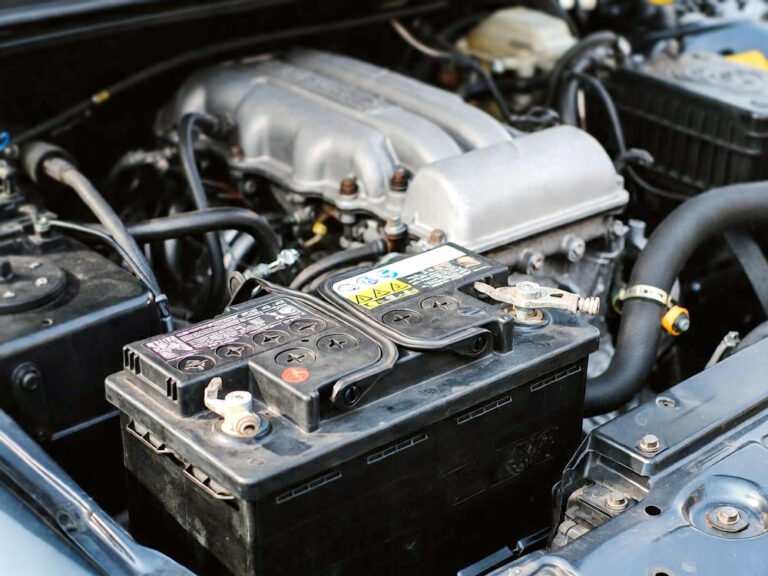Have you ever pressed the gas pedal, but your car feels slow and weak instead of speeding up? It’s really frustrating and can happen anytime. I had this problem once, and after some checks, I found the cause and fixed it quickly. If your car is bogging down when accelerating, you might have a simple problem that needs attention. In this article, I will explain what causes this issue and how you can fix it step by step.
Check the Fuel System First
One of the main reasons your car bogs down when you press the gas is a problem with the fuel system. The engine needs clean fuel and the right amount of it to work well. If the fuel filter is dirty or clogged, fuel flow is not enough, making the engine struggle. Also, if the fuel pump is weak or failing, it won’t send enough fuel to the engine. This makes your car slow and weak.
Another problem can be dirty fuel injectors. These little parts spray fuel into the engine, and if they are blocked or dirty, the fuel won’t reach the engine correctly. This causes a poor mix of air and fuel, so the car loses power and bogs down.
To check the fuel system, first, look at the fuel filter. If you haven’t changed it in a long time, it might be time to replace it. Next, listen to the fuel pump when you turn the key on; it should make a humming sound. If not, the pump might need fixing or replacing. You can also use a fuel injector cleaner, which helps clear dirt and keeps injectors working well.
If you want to keep your car running smooth, don’t ignore the fuel system. Clean fuel and parts that work well help the engine get the right power.
- Dirty or clogged fuel filter blocks fuel flow
- Weak fuel pump can’t send enough fuel
- Dirty fuel injectors stop good fuel spray
- Replace old fuel filter for better flow
- Listen for fuel pump noise to check health
- Use injector cleaner to clear dirt and improve power
Look at the Air Intake and Filter
Your engine needs air to burn fuel properly. If the air filter is dirty or the air intake is blocked, your car will have trouble getting enough air. This can make the engine bog down when you try to accelerate. Air and fuel must mix right for the engine to run strong.
A dirty air filter is a common cause of this problem. Dust, dirt, and leaves can clog the filter, stopping air from reaching the engine. This means the engine gets less oxygen, and it can’t burn fuel well. When this happens, your car feels slow and weak.
Sometimes, the air intake hose can be cracked or loose, letting in bad air or no air at all. This also causes poor engine performance. Check the hose for any damage or loose connections.
To fix this, remove the air filter and see if it is dirty. If it looks dark or clogged, change it with a new one. Also, check the air intake hose for cracks or holes. If you find any, replace or fix the hose.
A clean air filter and good air flow help your engine run smoothly and give you better speed when you press the gas.
- Engine needs air to burn fuel right
- Dirty air filter blocks air flow
- Less air means weak engine power
- Check air intake hose for cracks or leaks
- Replace dirty air filter for better airflow
- Fix damaged air intake hose to improve engine
Inspect the Spark Plugs and Ignition System
If your car feels slow or bogs down when accelerating, the problem might be in the spark plugs or ignition system. Spark plugs create tiny sparks that light the fuel and air mix inside the engine. If they are dirty, worn out, or broken, the engine won’t fire properly. This causes weak acceleration and rough running.
Old spark plugs can get covered in carbon or oil deposits. When this happens, the spark gets weak or stops. The engine misses firing, and the car bogs down. Sometimes, spark plug wires or coils have problems too, causing weak sparks or no spark at all.
To check this, remove the spark plugs and look at their tips. If they are black, oily, or worn, it’s time to replace them. Also, check the wires and coils for cracks or damage. If you find any, fix or replace those parts.
Changing spark plugs regularly helps keep your engine strong and smooth. The car will accelerate better and not bog down when you need power.
- Spark plugs create sparks for engine power
- Dirty or worn plugs cause weak sparks
- Weak sparks make engine run rough and slow
- Check spark plugs for dirt or damage
- Replace old spark plugs for better ignition
- Inspect ignition wires and coils for problems
Examine the Exhaust System
Your car’s exhaust system removes gases from the engine. If it is blocked or damaged, these gases can’t escape well, and the engine will lose power. A clogged catalytic converter or muffler causes the car to bog down when accelerating.
The catalytic converter cleans harmful gases but can get blocked by dirt or damage over time. When this happens, back pressure builds in the engine, making it hard to push the gas pedal. You may also notice the car running rough or stalling.
The muffler can also get clogged or rusted, which blocks exhaust flow. This slows down the engine and causes bogging.
To check the exhaust system, listen for strange noises like rattling or loud sounds. Also, smell for strong exhaust smells inside the car, which means leaks. If you suspect a blockage, a mechanic can test the exhaust flow.
Fixing or replacing a blocked catalytic converter or damaged muffler can restore your car’s power and stop it from bogging down.
- Exhaust system removes engine gases
- Blocked catalytic converter causes engine stress
- Clogged muffler slows down exhaust flow
- Back pressure makes engine weak and slow
- Listen for rattling or loud exhaust noises
- Repair or replace damaged exhaust parts for power
Test the Transmission and Clutch (If Manual)
If your car bogs down only when you press the gas and try to go faster, the problem might be with the transmission or clutch (for manual cars). The transmission sends engine power to the wheels, and the clutch helps switch gears.
A slipping clutch means the clutch plate is worn or damaged. When this happens, the engine runs, but power does not reach the wheels well. This makes the car feel weak or bogged down even if the engine is fine.
Transmission problems like low fluid or worn gears can also cause slow acceleration. If the transmission fluid is dirty or low, the gears don’t move smoothly, and the car loses power.
To check this, notice if the engine revs up but the car doesn’t speed up — this can mean a slipping clutch. Check the transmission fluid level and color. If it’s dark or low, change or fill it up.
Fixing a slipping clutch or transmission issues requires mechanic help but can bring back your car’s smooth acceleration.
- Transmission sends power to wheels
- Slipping clutch causes loss of power in manual cars
- Low or dirty transmission fluid makes gears slow
- Engine revs up but car feels slow = clutch slipping
- Check transmission fluid level and color
- Repair clutch or transmission for smooth driving
Look for Engine Sensors or Computer Issues
Modern cars use many sensors and a computer (ECU) to control the engine. If sensors like the mass airflow sensor (MAF) or oxygen sensor (O2) fail, they send wrong information to the engine. This makes the engine run badly and bog down.
The MAF sensor measures the air coming into the engine. If it’s dirty or broken, the engine can get too much or too little fuel. The oxygen sensor checks the exhaust gases to keep the fuel mix right. A bad O2 sensor can also cause poor engine performance.
If the engine computer has errors or needs a reset, the car might lose power or bog down. Sometimes, a check engine light will come on.
To fix this, clean the MAF sensor with special spray or replace it if needed. Check the O2 sensors for problems and replace if faulty. A mechanic can read error codes from the engine computer and reset or fix problems.
Good sensors and a healthy engine computer help your car run smoothly and accelerate well.
- Sensors send info to engine computer
- Bad MAF sensor causes wrong fuel mix
- Faulty oxygen sensor hurts engine performance
- Check engine light may come on for sensor issues
- Clean or replace dirty sensors for better running
- Use a mechanic to read codes and fix computer errors
Final Thoughts
When your car bogs down while accelerating, it can be a sign of many different problems. Checking the fuel system, air filter, spark plugs, exhaust, transmission, and sensors will help you find the cause. Most of these issues are fixable with simple cleaning, replacements, or mechanic help. Taking care of your car regularly will keep it running strong and stop it from feeling weak when you press the gas.
| Problem Area | What to Check | How to Fix |
|---|---|---|
| Fuel System | Fuel filter, pump, injectors | Replace filter, clean injectors |
| Air Intake | Air filter, intake hose | Replace filter, fix hose |
| Ignition System | Spark plugs, wires, coils | Replace plugs, repair wires |
| Exhaust System | Catalytic converter, muffler | Repair or replace blocked parts |
| Transmission/Clutch | Fluid level, clutch slipping | Fill/change fluid, fix clutch |
| Sensors & Computer | MAF sensor, O2 sensor, ECU | Clean/replace sensors, reset ECU |
Frequently Asked Questions (FAQs)
Is it normal for a car to bog down when accelerating?
No, it’s not normal for a car to bog down when you press the gas. This usually means something is wrong with the fuel, air, or engine system. A well-running car should respond quickly and smoothly to acceleration. If your car feels slow or weak, it needs attention. Problems like dirty fuel filters, bad spark plugs, or clogged air filters are common causes. Ignoring this can make the issue worse and damage your engine.
Can a dirty air filter cause a car to bog down?
Yes, a dirty air filter can definitely make your car bog down. The engine needs fresh air to mix with fuel for burning. If the air filter is full of dirt and dust, less air gets into the engine. This makes the fuel burn poorly, and the car feels weak and slow when you accelerate. Changing your air filter regularly is easy and helps the car run better and save fuel.
Do I need to replace spark plugs if my car bogs down?
Often, yes. Spark plugs wear out over time and get dirty. When they don’t work well, the engine doesn’t get the spark needed to burn fuel properly. This causes weak acceleration and rough running. Checking and replacing spark plugs every 30,000 to 50,000 miles can keep your car running strong. If your car bogs down, worn spark plugs might be the reason.
Is it possible the transmission causes bogging?
Yes, the transmission can cause bogging, especially in manual cars. A slipping clutch or low transmission fluid means the engine power isn’t reaching the wheels properly. This makes the car feel slow and weak even if the engine sounds fine. Automatic transmissions can also have issues if fluid is low or old. Checking the fluid and clutch condition helps spot transmission problems early.
Can a clogged catalytic converter cause acceleration problems?
Absolutely. The catalytic converter cleans exhaust gases but can get clogged with dirt and damage. A blocked converter causes back pressure on the engine, making it hard to push the gas pedal and speed up. This leads to bogging down. If your car feels weak and has trouble accelerating, the catalytic converter might need inspection or replacement.
Do I need to clean or replace engine sensors to fix bogging?
Sometimes cleaning or replacing sensors like the mass airflow sensor or oxygen sensor fixes bogging problems. These sensors tell the engine how much fuel and air to use. If they send wrong signals because they are dirty or broken, the engine runs badly. Cleaning the MAF sensor or changing a faulty O2 sensor can improve engine power and smoothness.
Is low-quality fuel a reason for bogging down?
Yes, using low-quality or dirty fuel can cause the engine to bog down. Bad fuel can clog injectors and filters, causing poor fuel flow. This makes the engine lose power and run rough. Always try to use good fuel from trusted stations and keep your fuel system clean to avoid problems.
Can I drive a car that bogs down safely?
It is not safe to drive a car that bogs down when accelerating because it might lose power when you need it most, like on highways or during overtaking. This can cause dangerous situations. It’s best to check and fix the problem quickly to keep yourself and others safe on the road.


